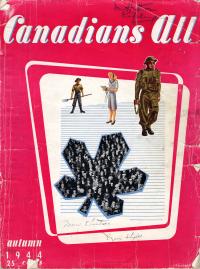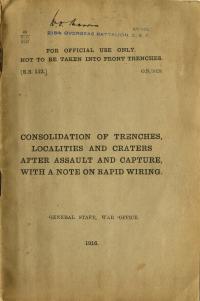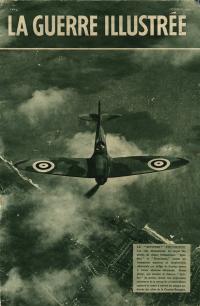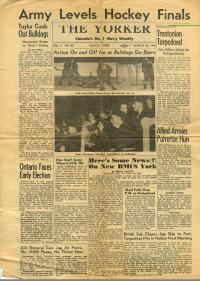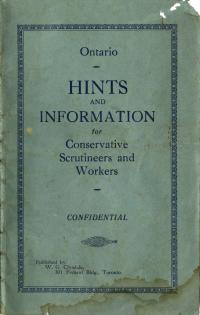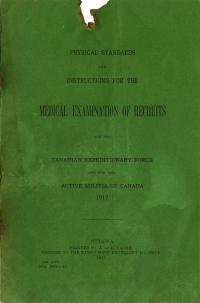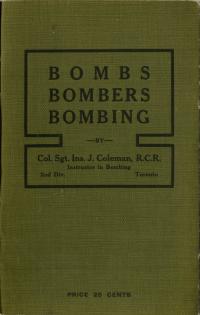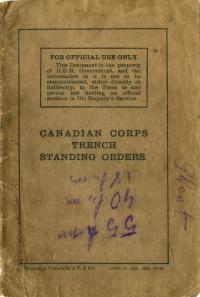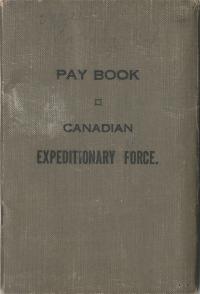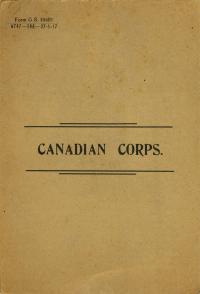Fighting
"'Foreign' Canadians in the Present War"
This general-interest magazine, created by Polish-Canadian journalists in Toronto, was directed at Canadians whose ethnic heritage was neither English nor French.
Constructing barbed wire defences
This manual, used for training purposes by the 215th Battalion of the Canadian Expeditionary Force, was based on two years' worth of hard experience in defending captured positions.
The Allies at war
Published in England, this magazine highlighted the breadth of the Allied war effort, and particularly the wealth in natural resources of the British Empire, for French-speaking readers.
Hockey dominates the news pages
The newspaper of HMCS York, billed as "Canada's No. 1 Navy Weekly", was dominated by sports news, with war bulletins and political news items thrown in for good measure.
Voting in Ontario
Wartime elections meant a new class of voters: those in uniform. In Ontario, the franchise was extended to men who were not normally allowed to vote, including those under the age of twenty-one and members of the First Nations, provided they were serving in the military.
Are you physically fit?
According to these regulations, medical requirements for volunteers to the CEF were fairly stringent. In practice, the need for manpower meant that many serious medical conditions were "overlooked".
"You have in explosives a good servant"
In this book, Sergeant Coleman of the Royal Canadian Regiment sought to augment the short time given to grenade training by providing practical hints on handling, arming, throwing, and making various kinds of bombs for use in trench warfare.
How to survive in the trenches
This booklet, written with the benefit of three years of experience with trench warfare, covered everything from gas discipline to rum rations.
A soldier's paybook
Harry Catling, a thirteen-year veteran of the British Army, left Canada for England as a reservist as soon as the First World War began, returned to Canada when his term of service expired in 1916, and promptly enlisted in the Canadian Army Service Corps in Toronto.
"Are my men full of keenness?"
Just a few months before the attack on Vimy Ridge, Canadian Corps commander Lord Byng showed as much interest in the comfort of his soldiers as he did in tactics - and encouraged his officers to do the same.

